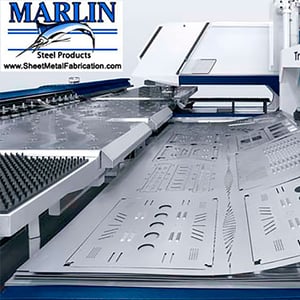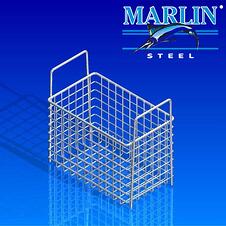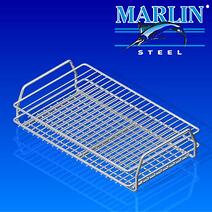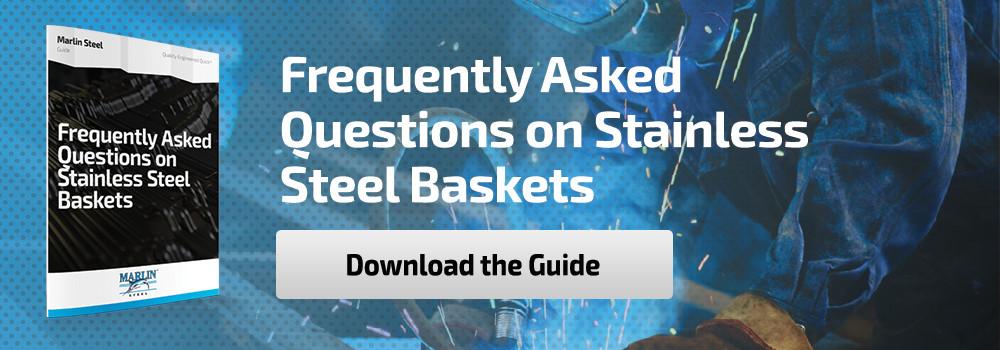 There seems to be some confusion out there about the difference between strength and stiffness in metal. After all, isn’t strong metal stiff, and stiff metal strong?
There seems to be some confusion out there about the difference between strength and stiffness in metal. After all, isn’t strong metal stiff, and stiff metal strong?
While there is often a correlation between strength and stiffness in metal, for manufacturing purposes, the two terms really should be clearly separated.
Why?
To answer this, here are a few of the differences in meaning between stiffness and strength in metal forms:
Defining Stiffness
Stiffness is the rigidness of any object or material. Objects with a high stiffness will resist changes in shape when being acted on by a physical force.
For example, loose, wet clay has low stiffness, changing shape with just a few pounds of pressure. The stiffness of aluminum is considerably stiffer than wet clay. In comparison, steel alloys have very high stiffness, allowing them to take on thousands of pounds per square inch (PSI) of pressure without deforming the surface of the metal.
The ability to take pressure without bending sounds like it should be used as the basis for the strength of a metal object such as a wire basket, but it isn’t.
This is for a good reason, too.
Stiffness depends on the modulus of elasticity, also known as Young’s Modulus. While strength can vary from grade to grade, Young’s Modulus is constant for any given metal and is independent of external stressors such as heat treatment, processing, or cold work.
In simple terms, when it comes to strength vs. stiffness, the strength of metal can change throughout the object, but its stiffness will remain constant.
Defining Strength
Mechanical strength can be defined as the measure of stress that can be applied to a material before it permanently deforms or breaks. This can be confusing because resistance to physical deformation is a key part of defining both strength and stiffness.
One of the key differences is in the use of the word permanent. A strong material can bend from a force that is below its maximum yield strength but it will return to its original shape once that force is removed. This means that a strong material can bend without breaking and return to its normal shape.
Another key difference is that a material’s strength is a function of its chemical composition and any heat treatments it undergoes when being converted in size or shape. Put plainly, strength can vary in a metal depending on the processes that metal has been subjected to.
Defining Hardness
While the first two properties were defined by the amount of stress or force a metal can take before being physically affected, hardness measures the metal’s resistance to surface deformation. Typically, this is in reference to a localized area of the surface.
For example, if you were to hit the surface of a piece of wood with a hammer, you would spot an indentation or imprint of where the blow took place. This is an indicator of how hard the wood is. On the opposite end of the spectrum, if you did the same thing to a thick steel beam and there was no visual deformation on the surface, you could say that the beam was much harder than the wood.
What Does the Difference Mean for My Materials?
As stated earlier, there’s often a strong correlation between strength, hardness, and rigidity. But, the difference can be a major one, especially when manufacturing metal materials that will be exposed to a variety of external forces.

For example, an extremely rigid material can also be very brittle, prone to breaking as soon as its threshold for pressure is exceeded. On the other hand, strong materials tend to bend before they break, and rebound once the load is removed unless said load exceeded the yield strength of the material. And, depending on the material’s hardness regardless of strength or stiffness, it may or may not be damaged by the impact of another object.
So, when you ask about how strong a custom metal form manufacturer’s products are, make sure that they know the difference between strength, stiffness, and hardness.
Let Marlin Steel Guide Your Metal Manufacturing
In need of metal products that meet your requirements for strength, hardness, or stiffness? Marlin Steel’s team of experts have extensive experience in working with a wide variety of materials, such as plain, stainless, galvanized steel, aluminum, titanium, and a variety of other alloys that vary in composition. Learn more about how Marlin can help you identify what you need in your metal products and then manufacture it for you today!



.gif)


